The proliferation of digital payment solutions in emerging markets is driven by the urgent need for efficiency, accessibility, cost-effectiveness, and the pursuit of economic growth. The businesses of Africa, the Middle East, and the APAC region are witnessing a profound transformation in their economic ecosystems, largely driven by the proliferation of digital payment solutions. By embracing digital payments, these markets are not only modernizing their financial systems but also laying the groundwork for a more inclusive, resilient, and prosperous future.
With the advent of mobile technology and the internet, traditional cash-based economies are transitioning towards more efficient and secure methods of transactions. The market for digital payments in Africa is expected to generate US$195.50 billion in total transaction value by 2024. This shift towards digital payments is not only revolutionizing the way people conduct financial transactions but also unlocking significant economic potential in emerging markets worldwide.
Mobile Payment Solutions: Empowering the Unbanked
Mobile payment solutions have emerged as a game-changer in emerging markets, particularly in regions where access to traditional banking services is limited. By leveraging the widespread penetration of mobile phones, the evolving landscape of the modern-day financial interactions enable individuals to conduct a variety of financial transactions conveniently and securely, without the need for a traditional bank account.
In countries like Kenya, mobile money platforms such as M-Pesa have become synonymous with financial inclusion, allowing millions of unbanked individuals to send and receive money, pay bills, and even access micro-loans with just a few taps on their phones. This innovation has not only empowered individuals with greater control over their finances but has also contributed to the growth of small businesses and the overall economy.
Why is this Shift Towards Digital Payments Occurring, and Why is it so Crucial for Emerging Markets?
Necessity of Efficiency
In many emerging markets, traditional banking infrastructure is inadequate, leaving millions of people underserved or entirely excluded from the formal financial system. Cash transactions are often cumbersome, costly, and prone to security risks. Digital payment solutions offer a more efficient alternative, allowing individuals to optimize their digital banking experience by conducting transactions quickly and securely, without the need for physical currency or traditional banking accounts.
Accessibility
Unlike traditional banking services, which may require extensive paperwork, identification documents, and physical presence at brick-and-mortar branches, digital payment solutions can be accessed through basic mobile phones. This accessibility is particularly crucial for populations in remote or rural areas, where banking infrastructure is limited or non-existent. By leveraging mobile technology, digital payments extend financial services to previously underserved communities, empowering them with greater financial autonomy and opportunities.
Cost-effectiveness
Digital payments offer significant cost savings for both consumers and businesses. Compared to cash transactions, which involve handling, transportation, and storage costs, digital payments are inherently more cost-effective. For businesses, adopting digital payment solutions reduces the risks associated with cash handling, such as theft, fraud, and counterfeit currency. Moreover, digital payments streamline accounting processes, improve cash flow management, and enable businesses to reach a wider customer base, driving economic growth and competitiveness.
Facilitating Economic Growth
The transition towards digital payments is not merely a matter of convenience but a catalyst for unlocking significant economic potential. By enabling faster, more transparent, and secure transactions, digital payment solutions facilitate greater financial inclusion, entrepreneurship, and innovation. Small businesses and entrepreneurs gain access to a broader market, while consumers enjoy greater convenience and access to a wider range of goods and services. This virtuous cycle of economic activity fuels job creation, income generation, and overall economic development in emerging markets.
Online Payment Solutions: Facilitating E-Commerce Growth
The rise of e-commerce has been a driving force behind the adoption of online payment solutions in emerging markets. As more consumers embrace the convenience of shopping online, businesses are increasingly turning to digital payment gateways to facilitate seamless transactions. Whether it's purchasing goods from local vendors or accessing global marketplaces, online payment solutions have bridged the gap between buyers and sellers, unlocking new opportunities for economic growth.
In countries like India, the proliferation of digital wallets and online payment platforms has fuelled the growth of the e-commerce sector, creating a thriving ecosystem of digital merchants and consumers. With secure payment options available at their fingertips, consumers are more willing to explore and engage in online transactions, thereby driving revenue growth for businesses and stimulating economic activity.
NFC Solutions: Transforming Retail Experiences
Near Field Communication (NFC) technology has revolutionized the way people make payments, offering a convenient and contactless alternative to traditional payment methods. In emerging markets, NFC solutions are reshaping the retail landscape by enabling seamless transactions at point-of-sale terminals, vending machines, and even public transportation systems.
Countries like China have witnessed widespread adoption of NFC-based mobile payment systems such as Alipay and WeChat Pay, where consumers can simply tap their smartphones to complete transactions. This frictionless payment experience not only enhances customer convenience but also accelerates transaction times, leading to greater efficiency for businesses and increased customer satisfaction.
Digital Payment Solutions: Driving Financial Inclusion and Innovation
Overall, the growth of digital payment solutions in emerging markets is fuelling financial inclusion and fostering innovation across various sectors. By providing individuals and businesses with access to secure and efficient payment mechanisms, these solutions are unlocking economic potential and driving sustainable growth.
From empowering the unbanked with mobile payment solutions to facilitating e-commerce growth with online payment platforms and transforming retail experiences with NFC technology, digital payments are reshaping the economic landscape of emerging markets. As technology continues to evolve and connectivity becomes more widespread, the potential for further innovation and expansion in digital payments remains immense, promising a brighter and more inclusive future for economies around the world.
Conclusion
From Africa to the Middle East and the Asia-Pacific region, the adoption of digital payment solutions is unlocking significant economic potential, empowering millions of individuals, and businesses with newfound opportunities. However, this journey towards financial inclusion and innovation is far from over.
To continue driving this momentum and maximize the benefits of digital payments in emerging markets, it is crucial to partner with trusted technology providers who understand the unique challenges and opportunities in these regions. This is where Panamax comes in.
We are a leading fintech solutions provider that offers a comprehensive suite of digital payment solutions tailored to the needs of emerging markets. Whether you're a mobile operator, financial institution, or enterprise looking to capitalize on the digital payments revolution, we provide the expertise, technology, and support you need to thrive in today's rapidly evolving landscape.



















